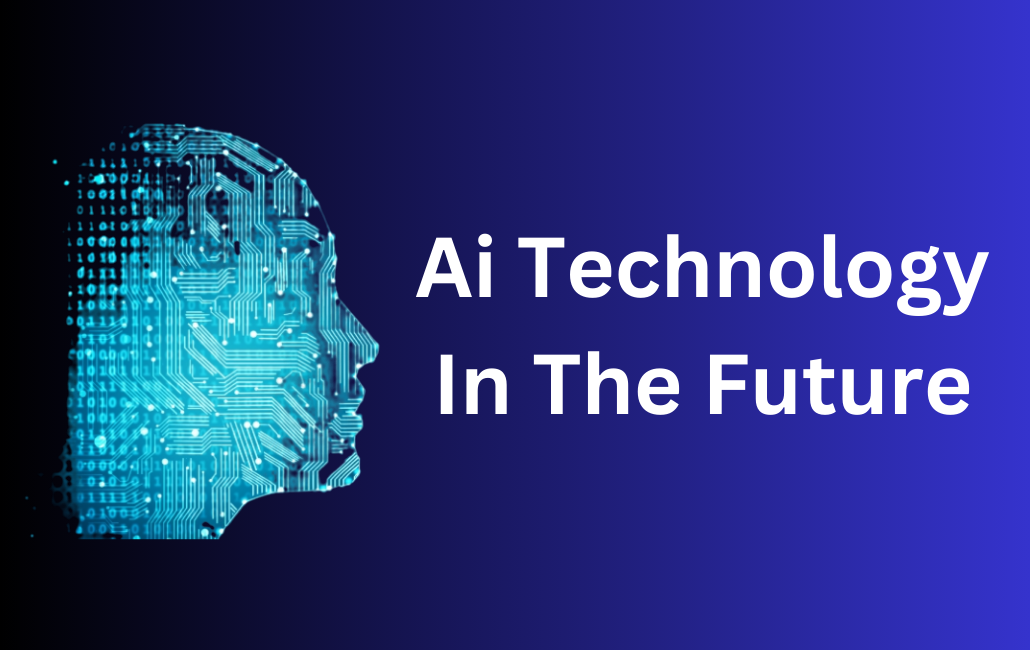In the future, AI technology will transcend boundaries, evolving into an integral part of our lives. Advanced AI systems will exhibit unparalleled adaptability, mastering complex tasks with precision and creativity. These systems will deeply understand human behavior, fostering seamless interaction through natural language and emotional intelligence. Ethical AI frameworks will govern its development, ensuring responsible and transparent use.
AI technology will transcend boundaries, evolving into an integral part of our lives.AI technology will transcend boundaries, evolving into an integral part of our lives:
Ai Technology involves a range of subfields and methodologies, including machine learning (where systems learn from data and improve their performance over time without explicit programming), natural language processing (enabling machines to understand, interpret, and generate human language), computer vision (enabling machines to interpret and understand visual information), robotics, expert systems, and more.
Best Ai technology for business
These Ai Technology power many applications and systems we interact with daily, from voice assistants like Siri and Alexa to recommendation systems, autonomous vehicles, medical diagnosis tools, and fraud detection systems. The goal of AI technology is to create systems that can analyze, understand, and act in complex environments, often aiming to perform tasks more efficiently or accurately than humans.
AI technology offers multifaceted benefits to organizations across industries. Here’s how:
Improved Efficiency: AI automates repetitive tasks, enhancing productivity. It optimizes workflows, reducing operational costs and time spent on manual processes.
Data Analysis and Insights:
Ai Technology efficiently analyzes vast datasets, extracting valuable insights that aid in informed decision-making. This helps organizations understand trends, customer behaviors, and market dynamics better.
Enhanced Customer Experience:
Ai Technology personalized interactions through chatbots, recommendation systems, and tailored services, improving customer satisfaction and retention.
Predictive Analytics: Ai Technology models predict future trends, potential risks, and customer preferences, empowering organizations to proactively strategize and adapt to changing scenarios.
Streamlined Operations: From supply chain management to inventory optimization, AI-driven systems optimize processes, ensuring smoother operations and resource allocation.
Risk Management and Security: AI fortifies cybersecurity by identifying threats, detecting anomalies, and swiftly responding to potential security breaches, bolstering organizational resilience.
Innovation and Product Development: AI fosters innovation by expediting research, aiding in product development, and facilitating the creation of novel solutions.
Implementing AI technologies requires strategic planning, ethical considerations, and continuous refinement. When applied thoughtfully, AI can significantly boost an organization’s efficiency, innovation, and competitiveness in the market.
Artificial Intelligence (Ai Technology) encompasses various computer technologies and methodologies aimed at creating systems capable of mimicking human intelligence. These technologies include:
Machine Learning: Algorithms and models that enable systems to learn from data, identify patterns, and make predictions or decisions without explicit programming.
Deep Learning: A subset of machine learning that uses neural networks to process data and extract intricate patterns, often used in image and speech recognition.
Natural Language Processing (NLP): Enables computers to understand, interpret, and generate human language, facilitating chatbots, language translation, sentiment analysis, and more.
Computer Vision: AI systems capable of interpreting and understanding visual information from images or videos, used in facial recognition, object detection, and autonomous vehicles.
Robotics: Integrating AI into machines and robots to perform tasks autonomously or with minimal human intervention, impacting industries like manufacturing, healthcare, and logistics.
Expert Systems: AI systems designed to emulate human expertise in specific domains, providing problem-solving capabilities and decision support.
Reinforcement Learning: Ai Technology learns to make sequences of decisions through trial and error in an environment, often applied in gaming, robotics, and optimization problems.
These technologies collectively contribute to creating intelligent systems that can reason, learn, perceive, and make decisions, impacting various industries, from healthcare and finance to entertainment and transportation. They continue to evolve, pushing the boundaries of what AI-driven systems can achieve.
Can AI Technology take over the world?
AI technology itself doesn’t possess the capacity to take over the world autonomously. The concerns regarding AI typically revolve around how humans develop, deploy, and govern these technologies.
AI technology itself doesn’t possess the capacity to take over the world autonomously. The concerns regarding AI typically revolve around how humans develop, deploy, and govern these technologies.
AI’s capabilities are expanding rapidly, raising questions about its ethical use, potential impact on employment, biases in algorithms, and the implications of autonomous decision-making. However, AI operates within parameters set by humans and is contingent on the data it’s trained on and the objectives programmed into it.
Concerns about AI “taking over” the world often stem from hypothetical scenarios where AI surpasses human intelligence (known as artificial general intelligence or AGI) and could potentially act against human interests. However achieving AGI is a speculative and complex challenge that requires comprehensive understanding, control, and ethical considerations.
Conclusion: The evolution of AI technology in 2024 was expected to focus on enhancing capabilities, ethical considerations, and practical applications across industries. However, specific breakthroughs and their impact would largely depend on ongoing research, development, and the ethical frameworks guiding AI’s deployment.

